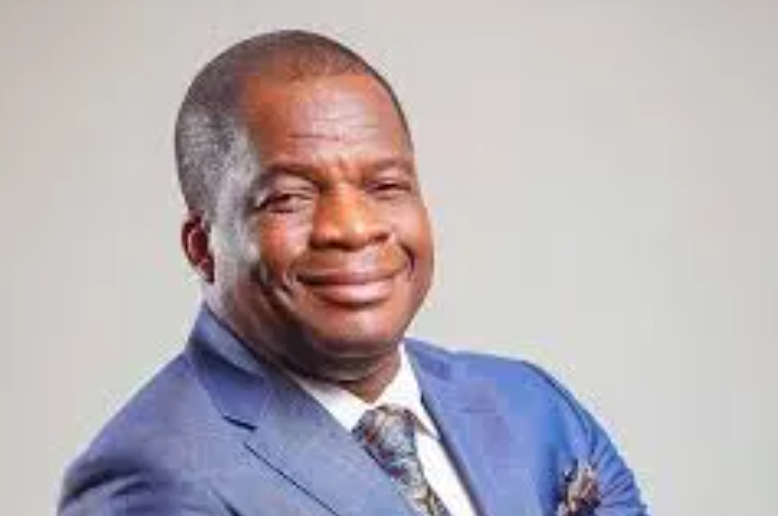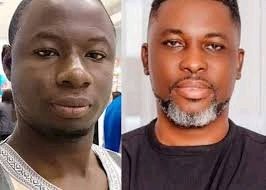
Ghana will, on December 7, go to the polls to elect a new set of political leaders, the ninth time since the beginning of the country’s Fourth Republic in 1992. The country is regarded as an oasis of peace and an island of stability in an ocean of unstable countries. Its elections have been relatively peaceful and have alternated power between the two main political parties, the New Patriotic Party (NPP) and the National Democratic Congress (NDC), on three different occasions. It’s a budding democracy with respected state institutions and a respect for the rule of law that has gained the country recognition in the comity of nations.
Its high attributes notwithstanding, elections in the country are fiercely contested between the two main political parties, and in some cases, pockets of violence are recorded. Such pockets of violence often have underlying issues such as ethnic conflicts, chieftaincy disputes, proliferation of vigilante groups and the country’s ‘winner-takes-all’ laws. Supporters of the two main political parties, often peaceful in their conduct of affairs and living together, sometimes become hysterical, resulting in violent clashes. In 2020, violence associated with elections resulted in the deaths of about eight people, the highest number recorded in one election cycle.
All the elections conducted in the country present their own uniqueness, and the 2024 election is also unique in its way, raising the stakes above previous elections. For the first time in Ghana’s political history, a former President is the candidate for the opposition party contesting the sitting Vice-President, who is the candidate for the ruling party. Both candidates, Dr. Mahamudu Bawumia of the NPP and Mr. John Dramani Mahama of the NDC, are of the same extraction, both coming from the northern side of the country. This is also the first time that the two leading parties are presenting candidates of different faiths: a Muslim and a Christian. Historically, the candidates of the two leading political parties have come from the Christian faith, which constitutes the majority of the population. For the 2024 general elections, Dr. Bawumia, a Mamprusi from the North East Region of Northern Ghana, is a Muslim, while his main contender Mr. Mahama, a Gonja from the Savannah Region of Northern Ghana, is a Christian.
Both candidates also share nearly the same political heritage, and their families have been friends since the candidates’ boyhood days. Their fathers both served in the first all-black political administration of Ghana, having been Minister and Deputy Minister in the Kwame Nkrumah government. E. A. Mahama, father of Mr. Mahama, and Mumuni Bawumia, father of Dr. Bawumia, served as Minister and Deputy Minister respectively in Kwame Nkrumah’s government and were very close friends. Growing up in Tamale, the capital of the Northern Region of Ghana, and staying in the same vicinity, the families of the two candidates, particularly the fathers, were so close that in the evenings, one of them would visit the other and have conversations on a wide array of topics ranging from personal lives and politics to family issues, among others.
The closeness of the two candidates should have ordinarily settled the mind of everyone to go to sleep, knowing there would be no issues in the elections. However, elections go beyond factors from the past. In the 2024 general elections, the New Patriotic Party wants to break the eight-year governance cycle in Ghana, becoming the first political party to have done so, while the NDC wants its flagbearer to win the election to complete his eight years constitutionally mandated tenure, as he is the only living president in Ghana’s Fourth Republic to have lost the elections after his first four-year, one-term in office.
Assemblies of God Steps In
To help shape the discussion of politics among Ghana’s Christian community, the Sunday School Department of the Assemblies of God Ghana has dedicated about six weeks to discussing the importance of politics and the role the church can play in ensuring a peaceful political process before the country goes into the crucial December 7 general elections.
Beginning from Sunday, October 27, the Church discussed “Leadership and Succession,” highlighting that God provides His people with leadership for the continuity of His work. With the main texts taken from Deuteronomy 36 and Joshua 1, the church discussed how God successfully prepared Joshua to take over the mantle of leadership to lead the people of Israel. The Memory Verse for the day was taken from Numbers 27:18, where the Lord commanded Moses to “Take Joshua, son of Nun, a man in whom is the spirit of leadership, and lay your hand on him.” The focus was to set the tone for the discussion that followed the selection of political leaders for a group of people.
On Sunday, November 3, the church will discuss “The Task of Political Leadership,” focusing on the fact that “the purpose of political leadership is to serve the interests of the people.” Taking the lesson text from 1 Kings, the objective of the lesson would be to state the responsibilities of political leaders and show ways a political leader would promote peace in the nation. The Memory Verse for the day will be taken from 1 Kings 12:7. In the text, the elders who served with King Solomon, upon a request from the people of Israel regarding King Rehoboam, Solomon’s son who succeeded him, advised him to listen to the request of the people and win their trust. “If today, you will be a servant to these people and serve them and give them a favorable answer, they will always be your servants,” the elders advised, highlighting the importance of service to the people as the main purpose of political leadership.
Relationship with Political Opponents
On Sunday, November 10, the Church will discuss “Relationship with Political Opponents,” with the objective of studying the causes of political intolerance and showing ways that the church can promote political tolerance. The central truth to this discussion is based on the fact that “Tolerance of political opponents leads to peaceful coexistence,” and the lesson text will be taken from 1 Samuel 18. The lesson will discuss the causes of political intolerance and overcoming political intolerance, and the Memory Verse will be taken from Proverbs 17:14, where the writer admonishes Christians to stay away from quarrels since “starting a quarrel is like breaching a dam” and advises Christians to “drop the matter before a dispute breaks out.”
On November 17, the Church will learn about “Being Magnanimous to Political Opponents,” with the objectives of stating why political opponents are not enemies and showing ways to show magnanimity to political opponents. The main lesson will focus on being considerate in celebrating victory, reaching out to political opponents, and reconciling with political opponents. The lesson highlights that “magnanimity towards one’s political opponents is a mark of true Christian maturity,” and the main text will be taken from 2 Samuel 1. The Memory Verse for the day will be taken from Romans 12:21, where the writer admonishes Christians not to be “overcome by evil but overcome evil with good.”
Submission to Authority
On November 24, the church will study submission to authority, focusing on the biblical reasons for obeying authority and ways by which Christians would submit to authority. Its central truth will highlight the fact that “God has instituted many types of authority, and scripture commands Christians to obey them.” With the lesson text taken from Romans 13, the study will discuss the fact that God establishes authorities, the authorities governed by love and law, and Christians are required to submit to the authorities based on God’s word. The lesson explains that “the state is an institution ordained and established by God. He has instituted the government because we need certain restraints to protect us from the chaos and lawlessness that is a natural result of sin, and God has established governments around the world to serve as agents of justice and to restrain evil.”
Peaceful Living
On the last Sunday before the General Election, December 1, 2024, which would also be the last day for the discussions on Christians and politics, the church will focus its discussion on “Living as Peacemakers,” with the objectives of explaining what it means to live as peacemakers and showing ways that Christians can live as peacemakers. The day’s central truth will focus on the need for Christians to seek to be peacemakers, with the Memory Verse taken from Matthew 5:9, where Christ stated that “blessed are the peacemakers, for they will be called the children of God.” The lesson text will be taken from Matthew 5 and will discuss how to respond to injustice, the need for Christians to love their enemies, and overcome evil with good.
The lessons have been pragmatically themed to meet the exigencies of the time with the hope that Christians would live peacefully with their political opponents throughout the electioneering period. The lessons on modest celebration of victory are geared toward ensuring that Christians do not become vessels for confrontations with political opponents, while the lessons on submission to authorities prepare Christians to obey all electoral laws, regulations, and directions of state actors, particularly security agencies and other state institutions, in ensuring a peaceful country. The lessons do not only target voters but politicians as well, highlighting their crucial purpose of serving the interests of the people.
I personally invite all readers to visit any Assemblies of God church near you to be a part of these impactful teachings.
Content by: Nana Kwasi Asuman-Frimpong




